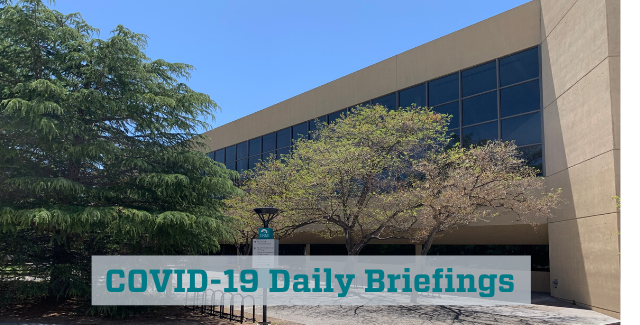Document Type
Brief
Publication Date
4-9-2020
Abstract
Executive Summary:
Today we began curating the firehose of National Library of Medicine COVID-19 Literature released daily. NM Governor gave weekly update. School online instruction starts Monday. Tribal communities in crisis. COVID-19 scams. NY food banks overwhelmed. Public sentiment survey. Arizona tracing outbreak with genomics. Abortion controversy continues. WHO Solidarity-II antibody study. South Korea epidemiology released. Preventing second COVID-19 wave. Institutional case reporting required. Gynecological procedure safety. Rationing ethics and advanced directives. CDC advice on exposed critical workers. Triaging urological procedures. Pathology safety and remote work. Healthcare workforce expansion. Involve and educate medical students. CDC no longer recommends hydroxychloroquine (HCQ). HCQ safety and dosing recommendations. Pain care consensus. NSAID lack of evidence. Dermatological agents. Immune suppressant/stimulant drug review. Clinical benefit of convalescent plasma. Loss of taste and smell common. Social distancing: elderly depression & suicidality. New trials registered-numerous therapies. Japanese student graduation with robot proxies.
Recommended Citation
Lambert, Christophe G.; Samuel Anyona; Evans Raballah; Shawn Stoicu; Anastasiya Nestsiarovich; Praveen Kumar; Nicolas Lauve; Hannah Groves; Danielle Rivera; Estefania Montanez; Rachel D. King; Andrew S. Rowland; Orrin Myers; Kristine Tollestrup; Tudor I. Oprea; and Douglas J. Perkins. "2020-04-09 DAILY UNM GLOBAL HEALTH COVID-19 BRIEFING." (2020). https://digitalrepository.unm.edu/hsc_covid19_briefings/7


Comments
Disclaimer: The UNM Global Health COVID-19 Briefing is provided as a public service. Sources include not only peer-reviewed literature, but also preliminary research manuscripts that have not been peer reviewed along with lay news media reports. The peer-review process often results in manuscript improvement, with corrections made for errors and unsubstantiated conclusions being corrected. Furthermore, many headlines and summaries in the briefing are written by student volunteers and others who may lack subject matter expertise in this rapidly evolving field. As such, the headlines and summaries should not be regarded as conclusive. Instead, readers are encouraged to use the briefing to identify areas of interest and then use the embedded links to read and critically evaluate the primary sources.